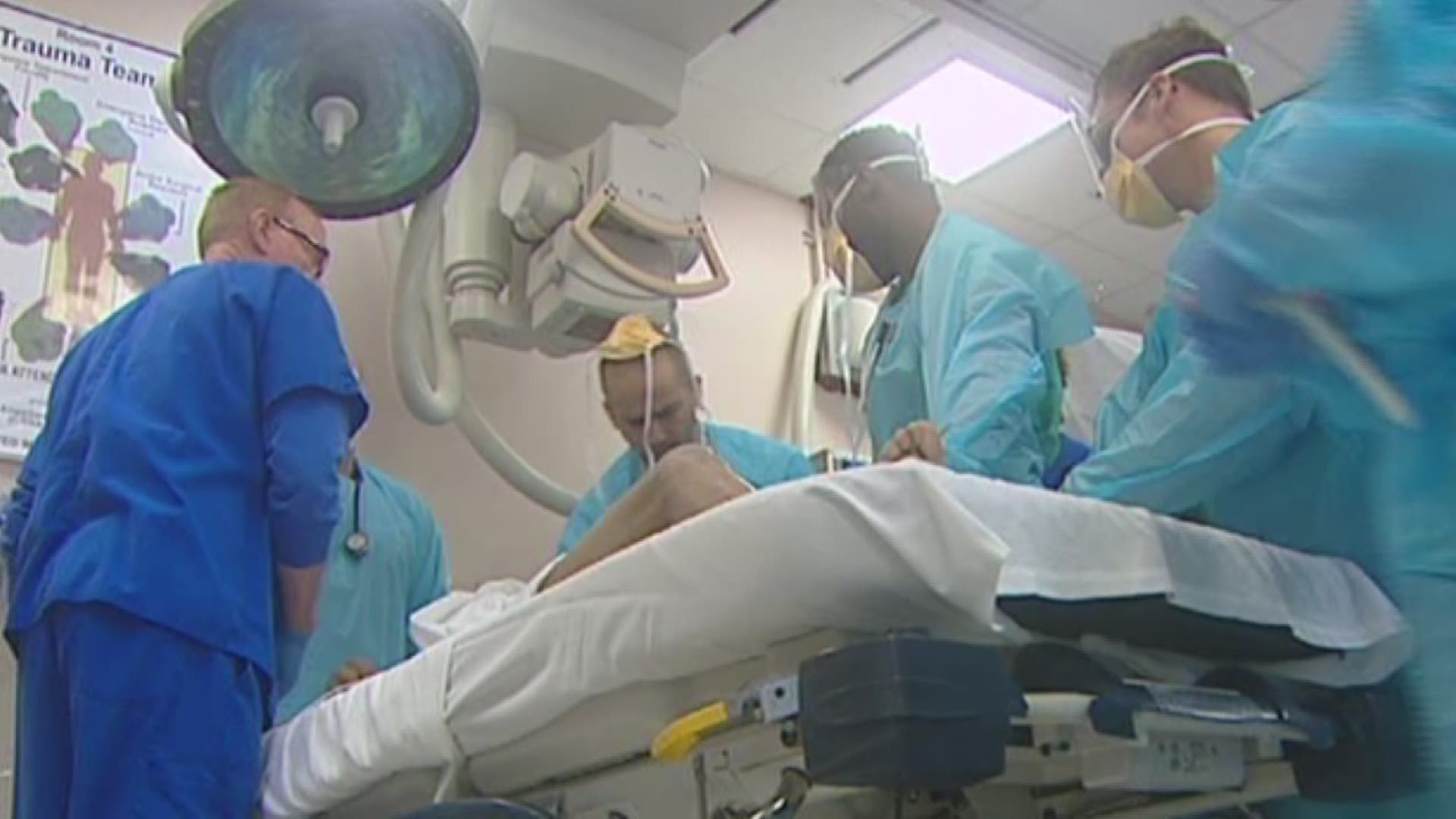President Trump described Congressman Scalise's condition as "more difficult" than was thought and as "in some trouble."
His doctors still list him in critical condition.
That's a change from friends who said that before he got to the hospital, he was talking, moving and seemed "OK."
Dr. John Hunt, the chief of trauma and critical care at the LSU Health Sciences Center, said that hearing Representative Steve Scalise is in critical condition is concerning. While some hospitals define it as an uncertain prognosis with the possibility a patient won't make it, to others it may simply mean the patient is in the ICU.
"Critical condition could mean just intensive monitoring," Hunt said. "We want to keep a close eye on this person, or it could be a lot of minute-to-minute interventions that are going on in the ICU."
Hunt is also the Trauma Medical Director for Level I Trauma Center at UMC. That's the same top-level designation as MedStar Washington Hospital Center in Washington D.C. where Scalise is being treated.
While Hunt is not caring for the congressman, he has treated many patients with gun shot wounds to the hip. And many of those critical patients have made a full recovery.
"It's probably more the norm than not," Hunt said.
Tulane medical student Dr. Peter Gold comes to mind. He was shot in the abdomen, listed in critical condition and at UMC for a couple of weeks. Recovery took months before he went on to do his residency.
With Scalise, the bullet entered an area of vital organs: Yhe hip bones, bladder, intestines, colon, major blood vessels and possibly the kidneys.
"It's what we would call a high-velocity missile, so it's a bullet that travels very fast," Hunt explained. "Kinetic energy is a lot greater. It has a lot greater chance of doing more damage."
Scalise had a third surgery Thursday morning. Hunt said that in general, doctors are constantly keeping up with stopping bleeding, cleaning out contamination from the digestive tract spilling in the abdomen, even wound infection prevention.
Patients like Scalise are on antibiotics, and sedated due to the pain, with a dedicated medical team at his side nonstop.
What Scalise's doctors are not saying is that he is critical, but stable, which could mean his vital signs are still fluctuating.
Any surgery to fix broken bones, or repair other organ damage always comes later, after a patient's vitals are stabilized.

